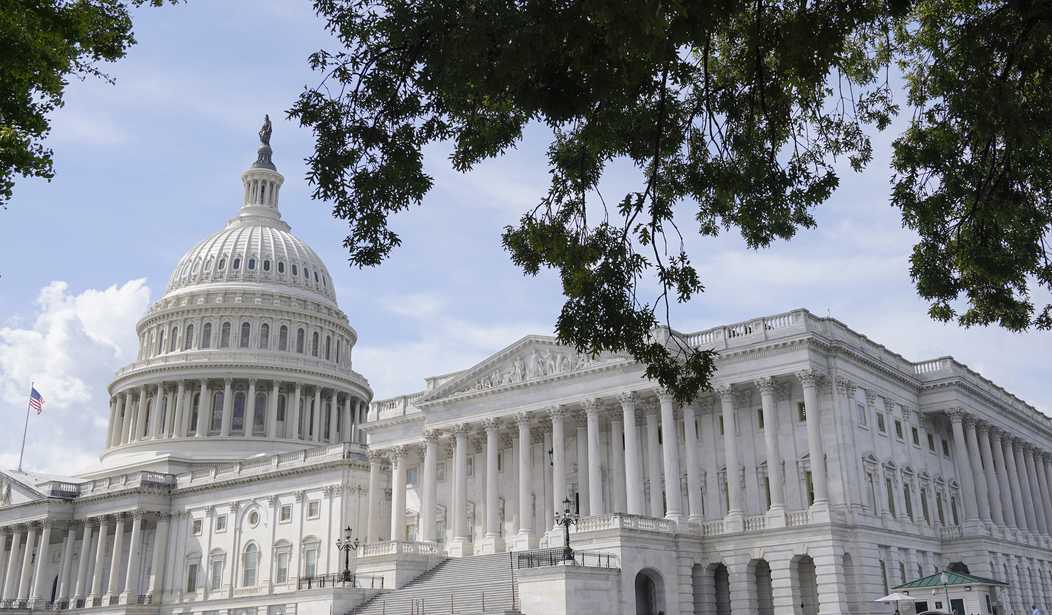After more than a year of sitting on the legislative back burner, a bill requiring auto manufacturers to keep AM radio in vehicles may soon have the votes it needs to pass through Congress. Aptly named the AM for Every Vehicle Act, the House bill, and its companion bill in the Senate, now have the backing of 200 House lawmakers and over 40 senators. Should support for the bill reach 218 in the House and 51 in the Senate, it will have the support it needs to head to President’ Biden’s desk. That would be a significant win for American consumers who depend on AM radio for everything from traffic reports, talk radio, and sports programming, to critical news updates during weather emergencies.
First introduced last May, the AM for Every Vehicle Act is designed to address the concerning trend of auto manufacturers removing AM radio functionality from new electric vehicles (EVs). In recent years, companies like BMW, Mazda, Polestar, Rivian, Tesla, Volkswagen, and Volvo have begun phasing out AM radio. They say this phase-out is necessary to prevent EV motors from generating electromagnetic interference, which can distort AM radio signals. While the technology exists to fix the issue, they argue installing it is cost-prohibitive and that AM radio represents a dying medium anyway. Moreover, consumers can access the same information elsewhere such as on their phone or via internet radio. These arguments are unconvincing and fail to acknowledge the essential public safety role that AM radio continues to play in Americans' lives.
While it may very well cost more to continue manufacturing vehicles with AM radio capabilities, it is certainly doable. Other automakers like Nissan, Hyundai, Kia, Subaru, Land Rover, and Mitsubishi have each committed to keeping AM radio in vehicles. Some like Ford have even reversed themselves on the subject and pledged to restore AM radio service to future vehicle models. There is no reason that others cannot follow suit.
It is also important to note that AM radio is not a dead medium. While AM radio may be less popular than a decade ago, 80 million Americans still listen to AM radio each month and they don’t deserve to lose access to one of their few remaining sources of free information. Indeed, while new services such as satellite radio and Bluetooth-enabled apps increasingly allow Americans to stream content anytime and anywhere, they are often not free. Customers often must pay for monthly subscriptions, something that is not always possible for low-income Americans.
Recommended
In addition, other groups of Americans like farmers still overwhelmingly rely on AM radio as a regular source of information. A recent study on the matter found that 81 percent of agricultural workers tune into AM/FM radio to receive their news and updates on weather and agricultural markets.
Most importantly, AM radio continues to be one of the primary tools by which the government communicates with the public during national emergencies. Since AM signals operate at a low frequency and have large wavelengths that can pass more easily through solid objects, it is the perfect medium for transmitting important information over vast distances. The federal government has invested heavily to make it the backbone of its public warning system.
Indeed, the Federal Emergency Management Agency’s Integrated Public Alert & Warning System utilizes AM radio to deliver life-saving information to Americans during weather related emergencies. During natural disasters, alternative forms of communication are not always available, as the worst types of disasters can knock out power and phone service, as occurred during Hurricanes Katrina and Maria. This makes the information delivered by AM radio an essential resource for Americans during these worse case situations.
In a recent study on the subject, researchers found that AM radio played a critical role in delivering life-saving information to Americans during several recent natural disasters. These include during the 2017 Tubbs and 2023 Maui wildfires, which knocked out cell service and internet access for thousands of area residents. Local radio stations provided a platform for people to offer assistance and support disaster recovery following these tragedies. In another recent example, a Wynee, Arkansas radio station’s early warning to residents about a quickly approaching tornado resulted in the town closing the local high school early, likely saving the lives of hundreds of students who would otherwise have been present for the school’s later destruction.
The vital role that America’s 4,500 AM radio stations continue to play in helping disseminate information during natural emergencies is unmistakable and perhaps one reason why seven former FEMA leaders recently sent a letter to congressional leadership pleading with them to pass the AM for Every Vehicle Act. They understand, as do millions of Americans, that AM radio “provides the greatest reach and most efficient geographic coverage” of any technology platform currently available and continues to be essential form of communication.
As a result, it would be irresponsible for automakers to phase out this popular service, when the technology exists to resolve any issue with signal interference. Americans deserve to know that they will continue to have access to the information they need to make informed decisions should a disaster come their way. Congress is right to consider preserving AM radio’s role in public safety.
Nate Scherer is a policy analyst with the American Consumer Institute, a nonprofit education and research organization. For more information about the Institute, visit us at www.TheAmericanConsumer.Org or follow us on X @ConsumerPal.

























Join the conversation as a VIP Member